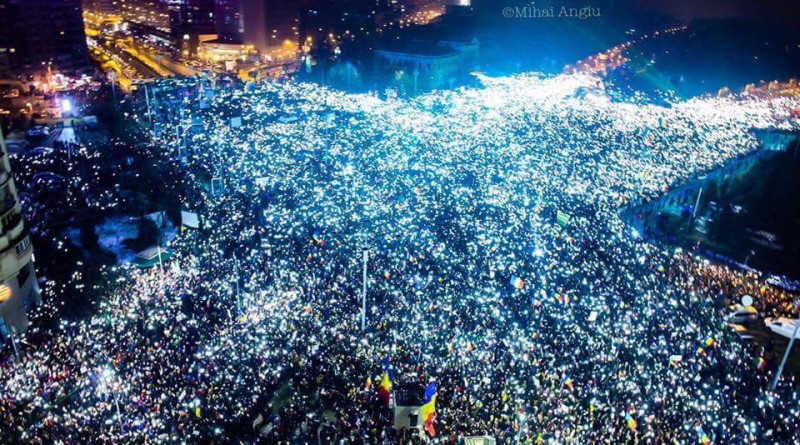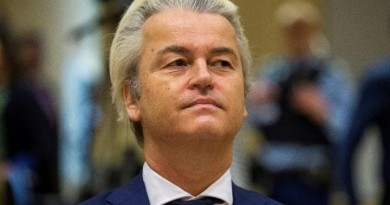Romanian protests will continue even after government pulls controversial decree
Around half a million Romanians have continued their protest against the government today, even after the emergency decree was repealed.
The first decree, Ordinance 13, which was to soften corruption law, was passed on Tuesday, January 31. If it became law, it would have saved some politicians from prosecution for corruption. That sparked protests all over the country and numerous calls for Prime Minister Sorin Grindeanu and justice minister Florin Iordache to resign.
Following all that, the Social Democrat government scrapped the decree on Sunday, February 5, and put forward another one, which has striking similarities to the original scrapped version.
Counting up to half a million people on Sunday, these are the largest protests the country has seen since the fall of communism in 1989.
Ramona Tofan is only one of the many people who have been out in the street for the last week, protesting along with her colleagues, her husband and her friends. She says she was enraged when the idea of the decree first appeared in Romanian media: “We don’t trust them anymore this is why we are going to keep protesting everyday!
Proud to have been 1 of the 300 000 in #Bucharest and 1 of the 600 000 in #Romania tonite! #romanianprotest #rezist 👊✌Foto Dan Balanescu pic.twitter.com/kQmWtZvSky
— Ramona (@ZambyR) February 5, 2017
She said that the protests will continue since the government’s reaction has been very ambiguous.
Under the proposed law, people found guilty of abuse of power would only face prison if the money involved was higher than £38,000 (200,000 Lei).
Liviu Dragnea, leader of the governing Social Democratic Party, would have directly benefitted from this law, since he’s banned from participating in government. That’s because of a conviction of vote-rigging, and is on trial for alleged abuse of power.
The government has argued that their aim was to reduce prison overcrowding and align certain laws with the constitution.
It’s unclear what will happen next, according to Alin Barbantan, junior researcher from the Romanian Academic Society, an anti-corruption NGO. He explained that the original decree weakens the Romanian penal code, as it essentially legalises thefts up to £38,000:
“Within the mass of protesters, there is also a body of people who simply don’t trust the current government anymore,” Mr Barbantan said, “they believe this has compromised the government’s legitimacy.
“His Cabinet hasn’t even been shuffled, further proving a governmental unwillingness to prove that it is taking active action to correct its previous mistakes.”
The decree was passed in “an unflattering manner” during night time, which sparked the series of protests across the country.
The constitutional court will rule on the legality of the original decree later this week.
For now the protests will continue tonight from 7 PM – 11 PM Eastern European time.




